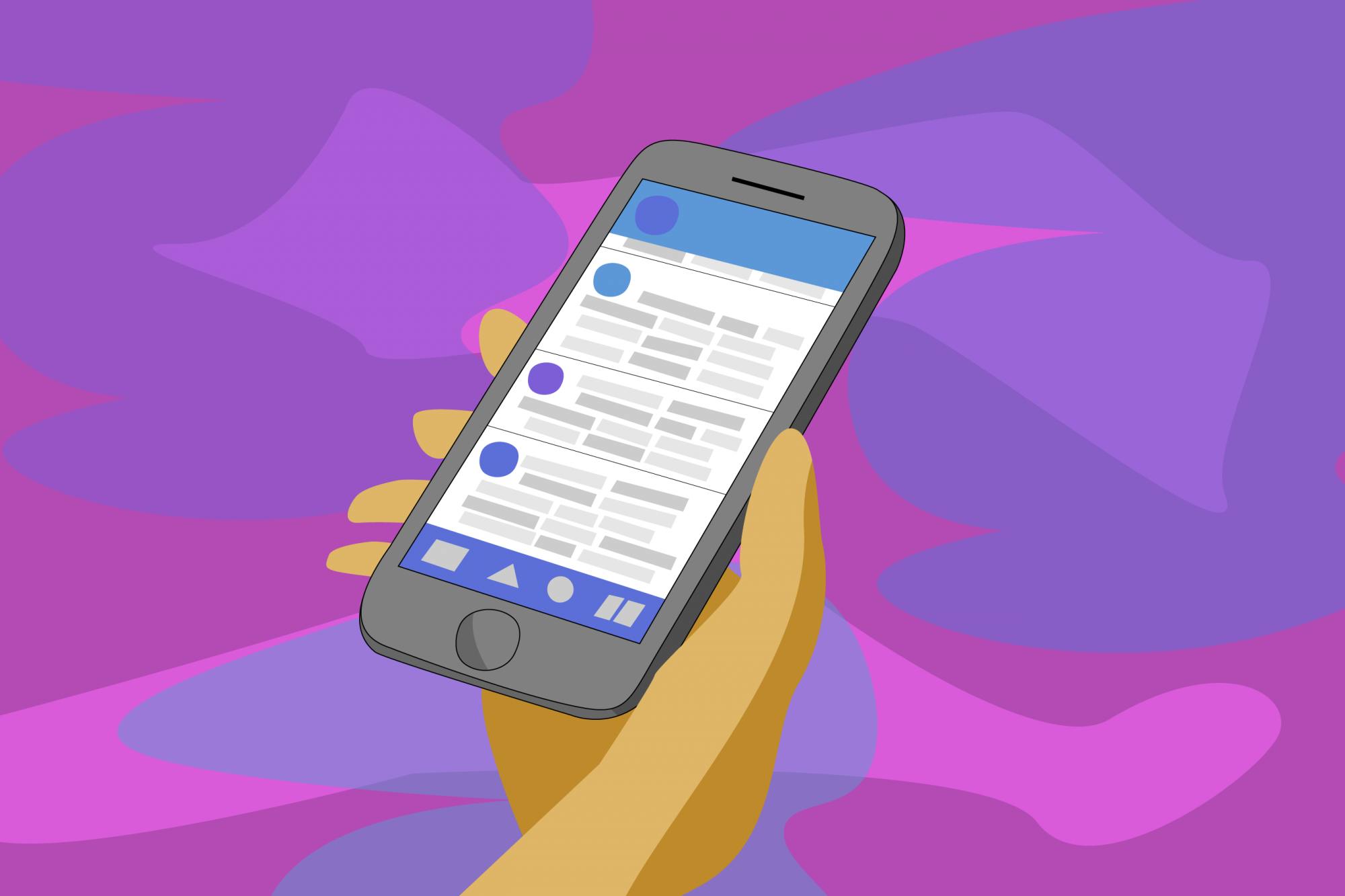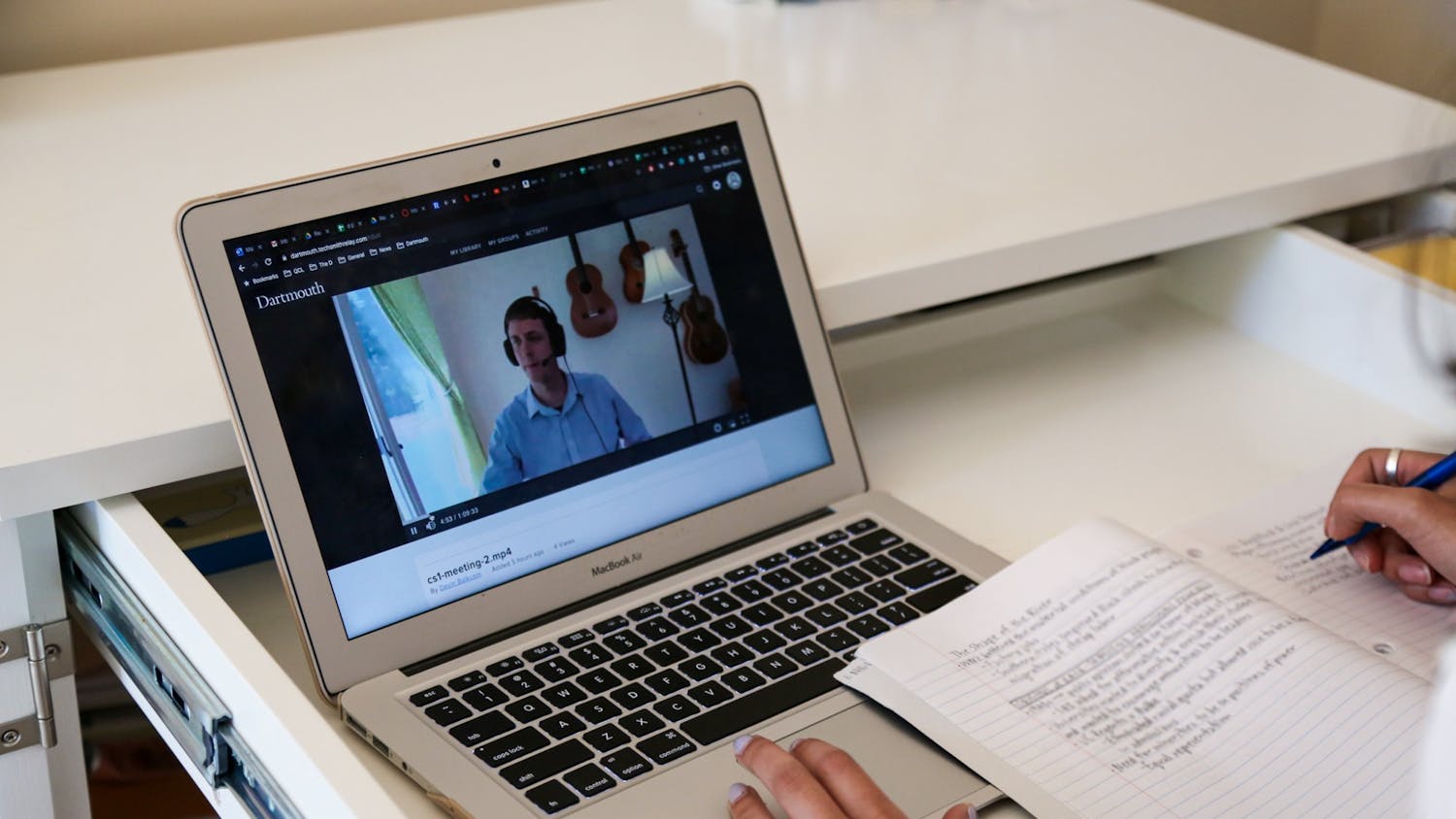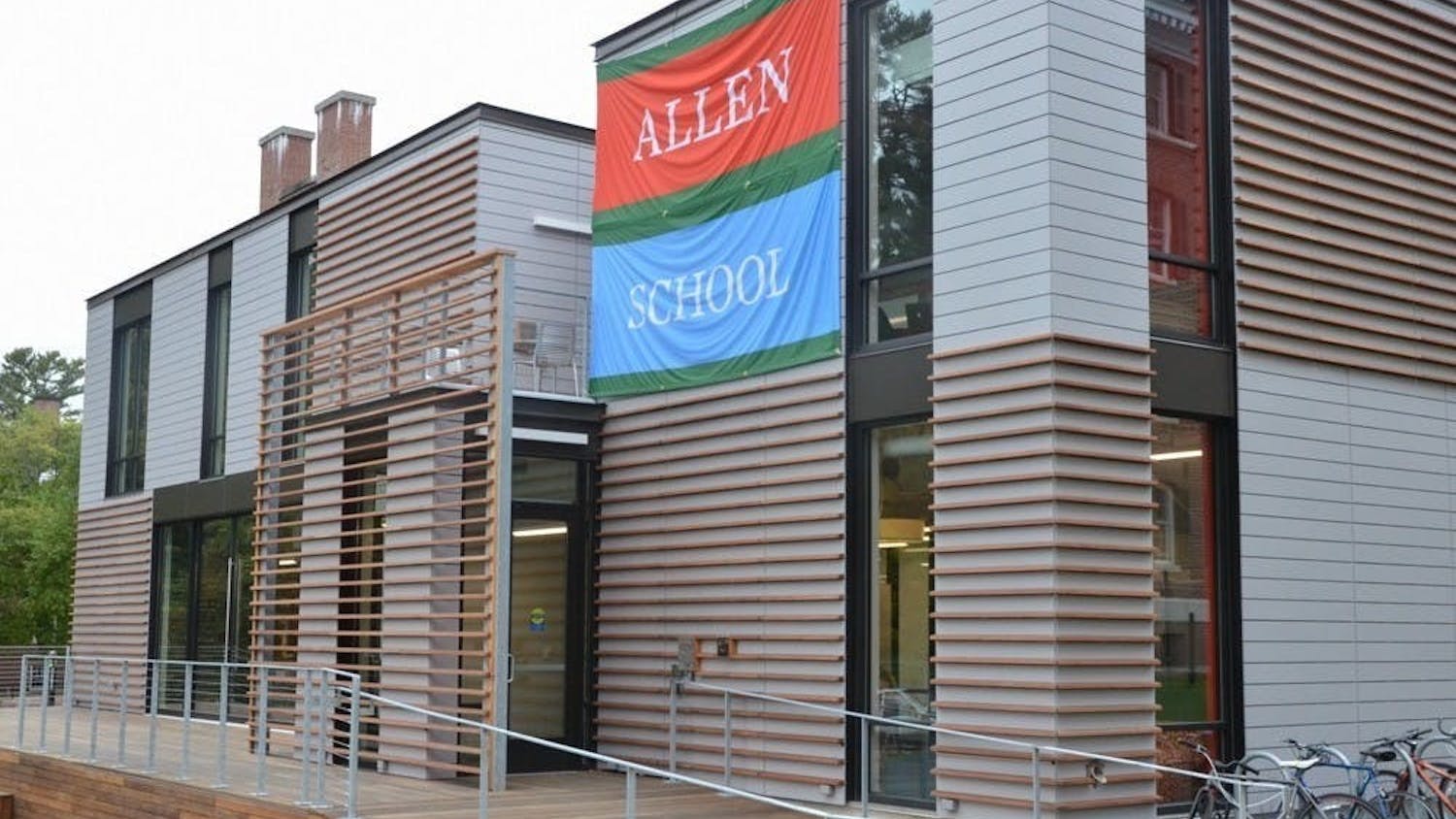This article is featured in the 2020 Freshman special issue.
Even in more normal times, Dartmouth students live a significant part of their college experience online. Right from the beginning, the first thing many freshmen do after receiving their Dartmouth acceptance letter is join their class year’s pages on Facebook or Instagram. Orientation itself is a frenzy of friending, liking and DM-ing in the hope that a virtual hello will turn into a real-life connection.
While the importance of social media might vary from person to person as students settle into college life, it never loses relevance as a part of the makeup of the Dartmouth community.
Dartmouth students are active on multiple apps and websites, with content on different platforms ranging from raw and occasionally mean-spirited posts to light-hearted memes. Some require more caution and sensitivity than others to navigate, and some may be worth considering as agents of influence on campus culture rather than just reflections of it.
On the less controversial side of Dartmouth online culture is the Facebook page “Dartmouth Memes for Cold AF Teens,” created in 2016 by former Student Assembly president Luke Cuomo ’20.
In recent months, the page has seen an abundance of memes about college news and how students are coping with being away from campus. One recent meme confronted the College’s claim that all students would have the opportunity to be on campus for two terms with the “Lies and deceit” template, while another compared Dean of the College Kathryn Lively’s contemplative prose to the style of poet Rupi Kaur.
Current moderator Samantha Locke ’22, who is also an editor for the Dartmouth Jack O'Lantern, said the page’s humor is meant to be topical and elicit a “laugh of familiarity.”
“The meme page is for jokes that have a lot of currency, as in people are talking about them all the time and they’re super relevant to news or to someone’s personal experience,” she said. “But they’re also super culturally legible.”
During the pandemic, students have posted a variety of memes regarding COVID-19 and its effects on the student body.
Even though classes were remote this spring, Last Chances, another online platform for Dartmouth students, was still running. A website that opens every spring term, Last Chances allows students to anonymously input the names of their crushes, which are linked to the Dartmouth directory. If two people mutually put each other down on the website’s server, they will “match.” Otherwise, users may view the number of people crushing on them, but the identity of those crushes remains anonymous.
Despite their physical separation, Dartmouth students have also expanded their online presence in light of current events. As the Black Lives Matter movement has gained traction globally, Instagram accounts like @blackivystories and @blackatdartmouth have begun sharing Black students’ anonymous anecdotes about their experiences with racism on campus. Following the campus controversy surrounding Maha Hasan Alshawi’s alleged harrassment by a Dartmouth professor, accounts like @dartmouthsurvivors, which allows students to share their experiences with sexual violence anonymously, have gained visibility.
Two anonymous platforms — Unmasked and Librex — have emerged as particularly popular, and at times controversial, online meeting places. One claims to fill a gap in the College’s mental health services, while the other has gained a following by providing an outlet for people to discuss their unfiltered opinions.
An app created in 2019 by Yale senior Ryan Schiller, Librex is an anonymous discussion site with platforms for different Ivy League colleges. Dartmouth students can create a profile and write posts open to upvotes or downvotes on the app’s ranking system. Posts are sorted top to bottom by either popularity or recency, and other users may comment. Users have the option of just posting to the Dartmouth section of the app or to an all Ivy League forum.
Schiller said the student response to the app’s rollout at Dartmouth was especially enthusiastic, even more so than was the case at Yale.
“There definitely seemed to be a nascent need, where people wanted to talk and signed up super quickly,” Schiller said.
The name “Librex” is a combination of the Latin word “Libre,” meaning “free,” and the word “exchange,” according to the app’s website. True to its name, the app allows for users to comment on any topic having to do with their school or college life. The app has caused controversy on campus due to its occasional derogatory and offensive posts.
In May and June of this year, for example, several Librex users used the platform to post disparaging comments aimed at then Student Assembly vice presidential candidate María Teresa Hidalgo ’22. One anonymous Librex post read that Hidalgo was “speaking from the slums of South America,” while another allegedly compared her and her running mate Olivia Audsley ’21 to Hitler and Mussolini. While the site’s content policy forbids calling out people by name, commenters have previously circumvented this by using other signifiers like initials. The content policy also prohibits threats, spam and “sweeping statements about core identity groups,” according to Librex’s website.
The app has a board of moderators to flag and remove posts that feature explicit hate speech. Schiller said he has recently increased the number of students on the moderation team to boost racial and socioeconomic diversity. He said the app also has a new moderation portal so that moderators are immediately notified about content flagged by users and the app’s AI.
“People want to test boundaries — I think that’s a human desire,” he said. “… And in that realm we have definitely beefed up moderation.”
Some Dartmouth students are wary of Librex. Locke said she stays away from the app and hears about what happens on it from friends.
“I think in general if you give people anonymity, unless of course it's moderated, they can say things that are petty or mean that they know better than to say,” she said.
Harold Than ’23, on the other hand, said that he uses and enjoys Librex. In his view, the app fosters a “more genuine online community” because anonymity often emboldens people to be more forthcoming about their opinions. He said that he made friends on Librex by starting discussions through the app’s “match” feature, which allows users to start one-on-one conversations.
“It’s the only place [at Dartmouth] I’ve felt a strong sense of community,” Than said. “You really feel like you belong to Dartmouth because you have things to talk about.”
Kevin Chen ’22 said that ethically navigating social media apps like Librex is possible with a civil mindset.
“The golden rule applies — obviously don't get into any unnecessary drama,” he said.
Also an anonymous app that maintains a discussion board limited to Dartmouth students, Unmasked is marketed as a space for students to share posts related to mental health. The app was launched earlier this year by Sanat Mohapatra ’20, who said he came up with the idea his freshman year.
“It's hard for Dartmouth students — college students in general — at times to open up about how they’re really feeling,” he said.
On the app, students can post stories, experiences and questions to which others can reply. The app also has a page that connects users with Dartmouth’s different mental health services.
Mohapatra said he wanted to create an app similar to the now-defunct Yik Yak, an anonymous message board that came under fire for racist and misogynistic posts and was shut down in 2017. Unlike Yik Yak, Unmasked is moderated by a board of current students to remove content that doesn’t reflect the community standards of the app.
Mohapatra said the range of content allowed on the app is intentionally narrower than that allowed on Librex, in an attempt to create a safer environment for people to open up about their feelings and experiences.
Moderators can also monitor conversations for signs of dangerous mental health situations. In one case, Unmasked disclosed to campus security the identity of a user who shared suicidal thoughts on the app. The student was subsequently contacted by local law enforcement and taken to a hospital.
In an interview with The Dartmouth, Mohapatra said that the student’s communications in the app had crossed the threshold for law enforcement involvement as outlined in the app’s community guidelines, to which users agree when they sign up.
Mohapatra said the main purpose of the app was about open discourse.
“While I believe in free speech, I just can’t ethically create a platform where students are receiving harassment or trolling.”
Nonetheless, he said it was important for the app to remain anonymous.
“Anonymity frees people from identity, so there’s no fear of judgment,” he said. “It frees people from the stigma around mental health.”
With the pandemic altering the fabric of college social life, the role of social media might be changing. Mohapatra said the common topics of discussion on his platform have changed significantly.
“All the content before COVID was people opening up about their experiences during rush, or [in] Greek life, or during classes, making friends and dating at Dartmouth — all of these in-person ideas,” he said. “But none of that really exists now.”
In the past, students have used social media to augment the strong in-person community at Dartmouth, according to Than. Without that connection, he doubts whether the Dartmouth community online will be as active. On the other hand, students like Chen have found online discussions about current college issues cathartic.
Now more than ever, the experience of being a Dartmouth student is an online one, whether logging on for classes, attending meetings or checking in with friends far away — or just across the dorm hall. It remains to be seen how Dartmouth students will utilize social media in a socially distanced environment.




